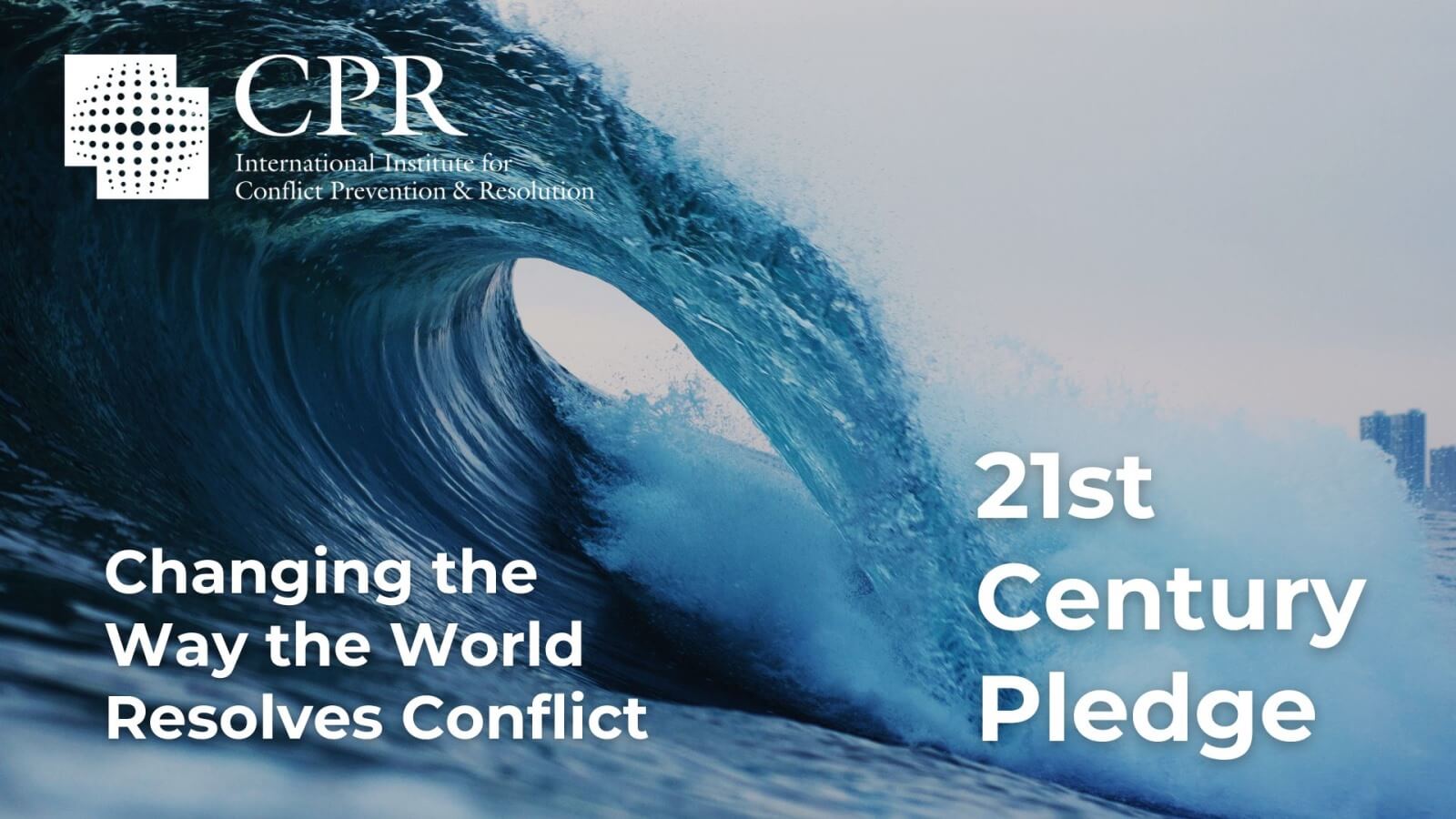How Do I Mediate Effectively?
A) Preparation
i) Model Clauses
B) Practice
i) Rules and Procedures
ii) Practice Areas
1. Banking Industry
2. Chemical Industry
3. Insurance Industry
4. Food Industry
5. Non-Prescription Drug Industry
6. E-Commerce
7. Franchising
iii) Mediator Qualifications and Ethics
a) Preparation
Model Clauses
Why Use Pre-dispute Resolution Clauses?
The best time to agree on a sensible way to resolve a contractual dispute is when parties are negotiating their business agreement, before any dispute has arisen. A cooperative atmosphere typically prevails at that juncture, so that agreeing on rational, fair dispute resolution procedures can be built into the negotiating process. Once disputes erupt, it can be much more difficult for parties to agree about anything.
Why Use ADR?
Too much, too time consuming and too expensive." That is the consensus in the business community about litigation. Most disputes between responsible parties can be settled by negotiation. But when negotiations fail, sequential use of multi-step alternative dispute resolution, or ADR, provides an alternative to litigation. (CPR Model Clauses and Sample Language)
CPR offers several model dispute resolution clauses and special international provisions are also available.
Model Clauses & Sample Language
b) Practice
i) Rules and Procedures
The choice of procedure or service provider can have a significant effect on the process outcomes. The CPR mediation procedure is developed to include best practices.
Mediation services are being offered by an increasing number of national, regional and local organizations. Essentially, three types of services may be provided:
Help bring parties to the table, i.e. secure their agreement to participate in the process.
Identify candidates well qualified to serve as mediator in the particular dispute, secure the agreement of all parties to the retention of one of the candidates, recruit that person and make compensation arrangements.
Administer the proceeding.
Most of these service providers also have their own sets of rules.
ii) Practice Areas
Below please find a listing of Industry Specific Pledges relative to specific practice areas or industries. If your organization would like to participate in any of the pledges listed below, please print and sign the linked PDF and return it to CPR.
(1) Banking Industry
(a) CPR has drafted a means by which corporations and law firms in the banking industry can commit to trying ADR procedures before moving to full-scale litigation. This Pledge is called the CPR Banking Industry Dispute Resolution Commitment.
(2) Chemical Industry
(a) CPR has drafted a means by which corporations and law firms in the chemical industry can commit to trying ADR procedures before moving to full-scale litigation. This Pledge is called the CPR Chemical Industry Dispute Resolution Commitment.
(3) Insurance Industry
(a) The following protocols and commitments have been signed by members of the insurance industry to aid in Dispute Resolution
-
CPR Insurance Industry Environmental Dispute Resolution Protocol
-
Insurer California Construction Defect Dispute Resolution Protocol
-
Future Major Disaster Pledge
-
CPR International Reinsurance Industry Dispute Resolution Protocol
-
Inter-Insurer Dispute Resolution Commitment for Disputes Relating to the September 11, 2001, Disaster
(4) Food Industry
(a) CPR has drafted a means by which corporations and law firms in the food industry can commit to trying ADR procedures before moving to full-scale litigation. This Pledge is called the CPR Food Industry Dispute Resolution Commitment.
(5) Non-Prescription Drug Industry
(a) CPR and the Nonprescription Drug Manufacturers Association (now the Consumer Healthcare Products Association) have developed a dispute resolution commitment for companies in the nonprescription drug industry. The pledge is called the CPR NonPrescription Drug Industry Dispute Resolution Commitment.
(6) E-Commerce
(a) Businesses that attempt to contract electronically with other businesses often confront inconsistent laws of contract formation and enforcement. CPR has drafted a means by which businesses can commit to trying ADR procedures before moving to full-scale litigation. This Commitment is called the Global E-Commerce ADR Commitment. Signatories to this document seek to create enforceable business-to-business electronic contracts, and to resolve disputes concerning those contracts in an expeditious and businesslike way.
(7) Franchising
(a) The Franchise Mediation Program was established in 1993 by a group of franchisors who sought a way to resolve disputes with franchisees without the rancor, uncertainty and cost of litigation, wherever possible. This Committee and CPR have drafted a means by which corporations and law firms in the franchise industry can commit to trying ADR procedures before moving to full-scale litigation: the Commitment to CPR Procedure for Resolution of Franchise Disputes.
iii) Mediator Qualifications and Ethics
A considerable body of literature has been developed about the regulation of mediators and the issues range from whether mediators need to be certified, to the criteria for any such certification program, to what entities should be allowed to certify mediators. To the extent regulations exist, they vary depending on a particular jurisdiction; whether the mediator is being paid or offering the service on a pro-bono basis; and whether the mediator is affiliated with a court program or a private setting. Most private ADR provider organizations have established qualification standards for affiliated mediators.
See Model Rule for The Lawyer as Third-Party Neutral.
Some states regulate mediator qualifications and training programs and other states are silent. In the federal court system, the Alternative Dispute Resolution Act of 1998 broadly states that with regard to each district court’s ADR process, “[e]ach person serving as a neutral in an alternative dispute resolution process should be qualified and trained to serve as a neutral in the appropriate dispute resolution process.” (Sec. 653(b)) No further specifications are provided.
2005 Model Standards of Conduct for Mediators
The information and resources on this website should not be construed as legal advice or opinion, or as a substitute for the advice of counsel.

